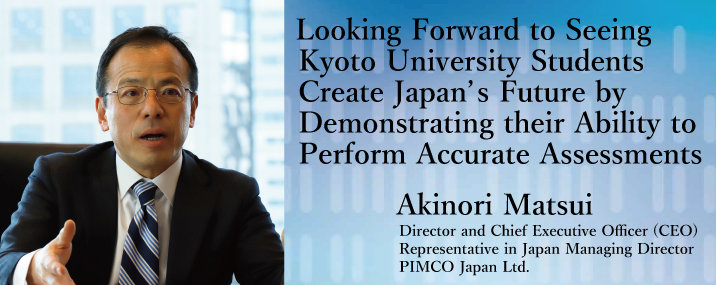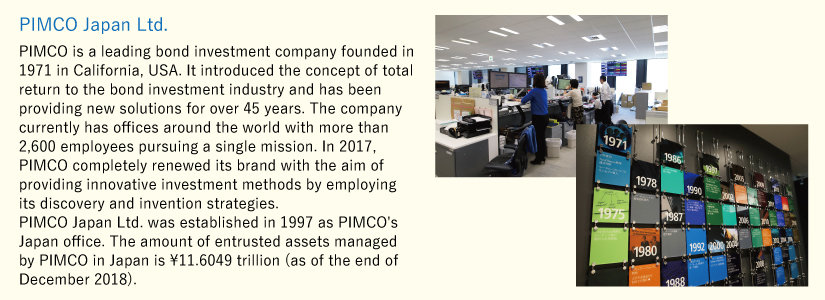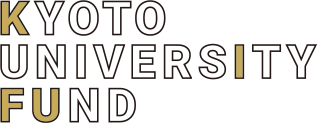Vol.12 Interview with Donors

Akinori Matsui
Born in Hyogo Prefecture in 1959. Graduated from Kyoto University's Faculty of Economics in 1982. Joined PIMCO Japan Ltd. in 2001, after working at Nippon Life Insurance Company and others. Left for Wellington Management in 2007, where he supervised business with financial corporations, pension funds, and sub-advisory clients, and then returned to PIMCO Japan Ltd. in 2010 as its Vice President. Became PIMCO Japan's Chairman of the Board, co-CEO, and Representative in Japan in June 2014. Assumed his current position in September 2016.
Vice President of the Japan Investment Advisers Association. Bachelor of Economics. Certified Member Analyst of the Securities Analysts Association of Japan.
Q What motivated you to donate to Kyoto University?
My brother and I, both Kyoto University graduates, lived in boarding houses throughout our college years. I can imagine we must have been a financial burden to our parents, so I help to provide scholarships by continuing to donate as much as possible. At the core of my motivation is my love for my alma mater for helping me throughout my four-year journey of forming the basis of my philosophy. Thinking back, I now understand that the University's culture of academic freedom provided me with extremely valuable opportunities to think hard about life and cultivate a critical and creative spirit. It also helped me to develop a number of qualities essential to both life and work, including the ability to see the true nature of things, make the right decisions, and take action.
Kyoto University is also where I made my lifelong friends, which adds to my love for the school.
Q What would you say is the significance of Kyoto University students?
Many of the top executive positions in the financial industry are currently held by Kyoto University graduates of my generation. I believe the world is full of opportunities for Kyoto University graduates to serve active roles particularly because we are in an era of change.
We are said to have entered the 4th Industrial Revolution, where jobs that used to be performed by humans are being replaced with ICT (information and communication technology) and AI (artificial intelligence). The role of humans today is to consider what needs to be done for the future by identifying issues based on the current situation, searching for solutions, and making long-term predictions. This role requires a Kyoto University student mindset of not fawning on power, questioning common wisdom, thinking creatively, and taking action boldly.
Q What role can Kyoto University serve in helping Japan deal
with its declining birthrate and aging population?
Japan's personal financial assets total ¥1,880 trillion, and more than half lies unused in savings accounts mostly owned by retirees. I believe we need measures, such as to put these assets to good use to cover social security costs, which are increasing along with the aging population. The Japan Investment Advisers Association, where I serve as Vice Chairman, and the Investment Trusts Association, jointly offer a donation course at Kyoto University. The course stresses the importance of asset management as an area where young talented people can play an active role. I believe that offering such courses is one of the responsibilities asset management companies have toward Japan's future.
Now, what role can Kyoto University serve? In addition to pursuing research aimed at developing new technologies and innovations, universities should conduct studies into people's anxieties that accompany technological development. Such academic disciplines as the humanities and social sciences, including philosophy, which explore questions like "Why do we exist?" or "How do we behave?," are among Kyoto University's specialties and will become increasingly important in the future.
Q Lastly, is there a message you want to leave
Kyoto University students with?
Although knowledge and skills are obtainable throughout life, the important thing is to have a solid foundation. I trust that students understand this and look forward to seeing them build for themselves a firm foundation.
Whenever delivering one of our donation course lectures, I offer attendees the following message.
When matters at hand are placed in the four quadrants of important, unimportant, urgent, and non-urgent, all of us--from individuals to governments, and companies of course--deal with important and urgent ones. However, we also spend a lot of time on other matters that are urgent but may not be important. The types of matters that I want Kyoto University students to work on are those that are non-urgent but nonetheless important.
Since Japan's declining birthrate and aging population progresses over time, it may seem like a non-urgent issue but is an important one for the country's future. I know Kyoto University students have the critical spirit needed for identifying and finding solutions to issues that would go unnoticed by others, and I look forward to seeing them do just that.
(Interviewed in April 2019)


